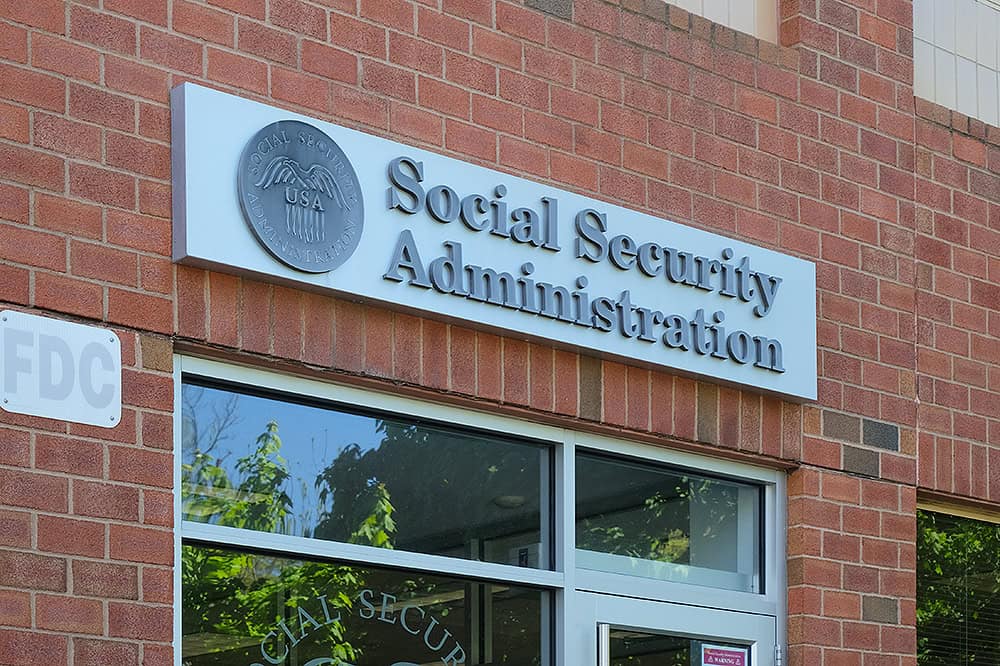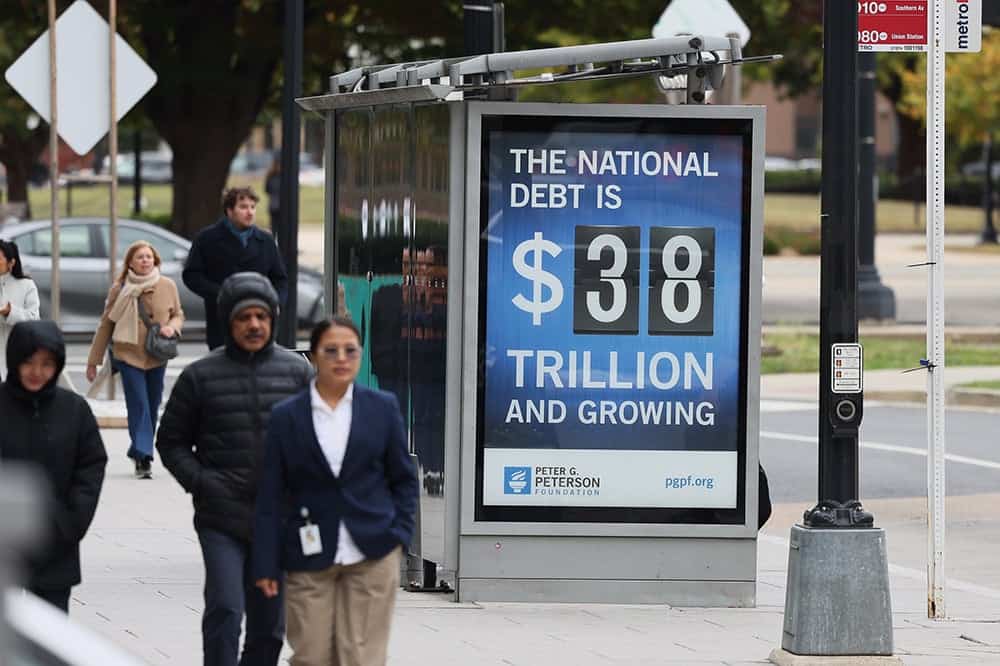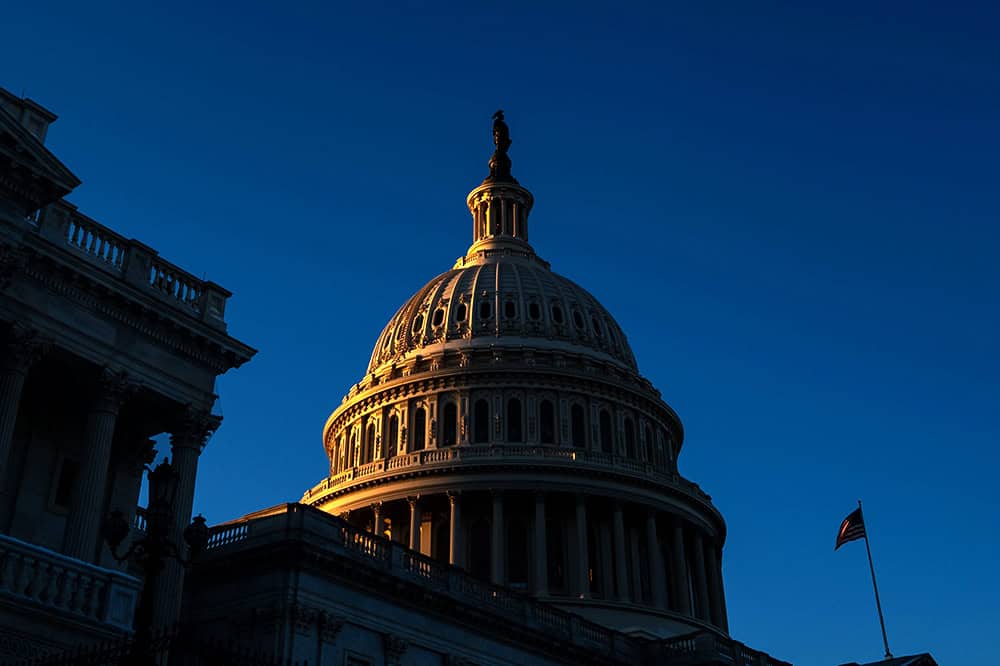As National Debt Surpasses $37 Trillion, Voters Want Congress to Improve Fiscal Outlook
U.S. Fiscal Confidence Index Remains Low in August at 49 (100 is Neutral)
Americans are deeply concerned about the country’s fiscal condition after the national debt surpassed $37 trillion this month. With the debt now growing at the rapid rate of a trillion more debt every five months, the U.S. Fiscal Confidence Index is 49 (100 is neutral), indicating that voters are calling for their elected leaders to address the debt and budget outlook.
The latest monthly survey commissioned by the Peter G. Peterson Foundation shows that 79% of voters are increasingly concerned about the national debt, with the same percentage urging leaders to spend more time addressing our fiscal outlook. Additionally, 75% of U.S. voters agree the debt should be a top-three priority for the president and Congress, including 68% of Democrats, 72% of independents, and 85% of Republicans.
“Today’s new survey shows widespread concern about the $37 trillion and growing national debt,” said Michael A. Peterson, CEO of the Peterson Foundation. “Across party lines, voters understand that high and rapidly rising debt threatens our economy because it puts upward pressure on interest rates and inflation, while harming jobs, wages and growth. When lawmakers return from recess in September, they will face a government funding deadline, and voters are seeking fiscally responsible budgetary leadership.”
The Fiscal Confidence Index measures public opinion about the national debt by asking six questions in three key areas:
- CONCERN: Level of concern and views about the direction of the national debt.
- PRIORITY: How high a priority addressing the debt should be for elected leaders.
- EXPECTATIONS: Expectations about whether the debt situation will get better or worse in the next few years.
The survey results from these three areas are weighted equally and averaged to produce the Fiscal Confidence Index value. The Fiscal Confidence Index, like the Consumer Confidence Index, is indexed on a scale of 0 to 200, with a neutral midpoint of 100. A reading above 100 indicates positive sentiment. A reading below 100 indicates negative sentiment.
Fiscal Confidence Index Key Data Points:
- The August 2025 Fiscal Confidence Index value is 49. (The July value was 45. The June value was 50.)
- The current Fiscal Confidence Index score for CONCERN about the debt is 45, indicating deep concern about the debt. The score for debt as a PRIORITY that leaders must address is 26, indicating that Americans want elected leaders to make addressing long-term debt a high priority. The score for EXPECTATIONS about progress on the debt is 77. The Fiscal Confidence Index is the average of these three sub-category scores.
The Peter G. Peterson Foundation commissioned this poll by Democratic firm Global Strategy Group and Republican firm North Star Opinion Research. This online poll surveyed 1,001 registered voters nationwide between August 18 and August 20, 2025. It has a margin of error of +/- 3.1%.
Detailed results can be found online at www.pgpf.org/FiscalConfidenceIndex.
###
ABOUT THE PETER G. PETERSON FOUNDATION
The Peter G. Peterson Foundation is a nonprofit, nonpartisan organization that is dedicated to increasing public awareness of the nature and urgency of key fiscal challenges threatening America's future, and to accelerating action on them. To address these challenges successfully, we work to bring Americans together to find and implement sensible, long-term solutions that transcend age, party lines and ideological divides in order to achieve real results. To learn more, please visit www.pgpf.org.
Further Reading
Lawmakers are Running Out of Time to Fix Social Security
Without reform, Social Security could be depleted as early as 2032, with automatic cuts for beneficiaries.
What Is the National Debt Costing Us?
Programs that millions of Americans depend on and care about may be feeling a squeeze from interest costs on our high and rising national debt.
Interest Costs on the National Debt Are Reaching All-Time Highs
The most recent CBO projections confirm once again that America’s fiscal outlook is on an unsustainable path — increasingly driven by higher interest costs.


